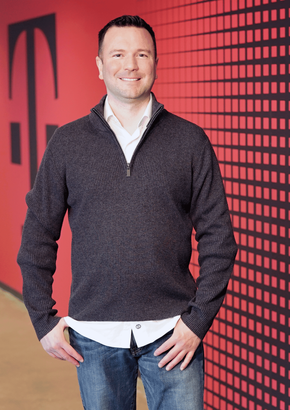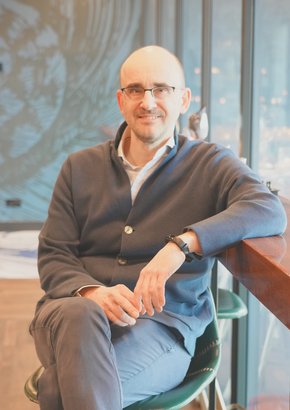
Fredrika Klarén
The more you speak to electric vehicle (EV) drivers, the better you begin to understand why so many of them opt for a Polestar. Premium design, intuitive technologies, and sustainable materials are just a few of the key attributes that make the brand so prominent in electrification.
But the company’s vision reaches further than this. As explained by Fredrika Klarén, Head of Sustainability at Polestar, the manufacturer seeks to be more than a maker of EVs, but facilitate connections and innovations that will support an ecosystem of mobility and the development of clean energy. We learn more about this from the following conversation.
Fredrika, tell us why you moved into the automotive industry.
I attribute it to magical thinking actually. Sustainability is where I've dedicated my life’s work. That's what gives me purpose and meaning in my life and I’ve been able to work at amazing companies with sustainability relating to production but also consumption of products. I was also a consumer of EVs. I became an EV owner very early on and what that means, being an early adopter, is you get some weird products that don't look that good, not very nice designs, not even functional at times. But, for me they were such an important tool for me to decrease my carbon footprint.
I learned how amazing this tool is because even though, yes, I got in as an early adopter, the products just made my life so much easier. For me they were more fun to drive, easier for me to use, I never had to fill up on gasoline, I could just plug it into the house. So I just really felt like this should be accelerated, this should really be on top of everyone's agenda.
Polestar popped up on my radar a few years before I started. I was so excited to join the company. Since then I've been able to help shape our sustainability agenda, working with amazing people, designers, creators, engineers, communicators, and really getting a sense of what you can do if you start early on in a company.
What are the key capabilities that define Polestar as a business?
We're all about design, innovation and sustainability at Polestar. Those are our three pillars and I do believe that we show how they are interconnected in our products in a great way. For example, in terms of materials, we know that we can design for increased circularity, we can design for low-carbon solutions.
The Polestar 3 is a great example of how innovation meets sustainability with vehicle-to-grid capabilities. How that can be used and implemented is a bigger issue, but at least we were able to put that in the car. That will have huge implications for the issues discussed at COP28.
Supporting partners in developing their electrified products
Polestar’s reach is beyond passenger-electric four-wheeled vehicles. The company really shines through for its technical expertise. Just looking at some of the businesses and projects the car maker has worked with elevates its status in electrification and highlights its collaborative approach to climate impact.
“It is very exciting to come in as young brands trying to build an ecosystem that is different from what we have seen before; pushing for electrification and seeing how we can go beyond our products,” says Klarén.
“We work with CAKE that makes electric mopeds and motorcycles. Candles is another example. Beyond that we collaborate with other EV brands. We’re really trying to build a new ecosystem and it's very exciting to be open to these types of collaborations.”
What was your involvement in COP28?
This was the third COP that Polestar attended. We started with COP26 in Glasgow, really eager to see how other automotive companies would show up and the dialogue around. In Glasgow we had this zero-emission vehicle declaration that we had high hopes for. The result: very few car companies signed that.
In Glasgow we realised that the automotive industry is very silent about the climate topic, very siloed, which is weird since passenger vehicles stand for 15% of global greenhouse gases. So, we went to Dubai with a clear message, which was shared in our pathway report, that the automotive industry needs to take collective action now to start decreasing emissions from passenger vehicles.
There are three very impactful levers that we can use. We can use the scale up of the technology that we have; the scale-up potential within a decade. We can, and should, scale up so that we don't sell ICE cars after 2032. And then make sure we build out renewable energy so that it can power the charging grids. The third one is to focus on the supply-chain-related emissions and decarbonise the production of cars.
But we were very lonely down there in Dubai. I saw a handful of OEMs, the big ones I didn't even see or take notice of, not even on transportation day on the 6th of December when we could show up and talk about our commitments.
What is the benefit of being a pure–play EV company?
It does make it possible for us to really start tapping into the business potential of technology and renewable energy. It puts us in a position where we can really be in the forefront. I think it's weird that other OEMs have not positioned themselves in a better way. But then again, look at Volvo, it is a great example of an OEM that is taking really bold steps to phase out fossil-fuel-powered cars and also turning to the decarbonisation efforts within production. I really don’t think OEMs are tied back by their interests in ICEs. It is now a matter of shifting as quickly as possible for their own benefit.
Why do you think companies are slow to commit?
I think there's an inherent fear of change in traditional industries, not only automotive, but all industries. If you've been around for a while, you've settled into your way of working and this inevitably creates a fear of change. But I do think that we need to give props to many of the automotive players because I'm seeing very exciting things that they are doing in terms of building the infrastructure for electric vehicles and so on.
Those are the things we want to see more of, because that will enable this ecosystem. We also have OEMs looking into shared services. I do think that there are good things going on that we need to respect and I would like to see more of that. Also an openness to be even more change-oriented and even more innovative and collaborative. We're not going to be able to do it in siloes.
What’s your view on globalisation of the EV market?
The movement needs to be on a global scale. We will not secure sustainable development if it's only happening within the EU. We absolutely need to see all countries stepping up globally. And, for example, we know that only a small percentage of cars rolling around on the streets are electrified. In our pathway report we show that to stay below 1.5 degrees, we have to see that 100% of sales are EVs by 2032.
That's a cornerstone in my sustainability work: to ensure that everyone is involved and that no one gets left behind.
I also see how we can, as a brand, really impact sustainable development within China by being very clear about what our ambitions and targets are and putting a lot of effort into finding the right solutions. When we find those solutions and we implement them, and we can show that these bring so much value to all of the actors involved, that will then be put into practice.
What are the key things you’ll focus on in 2024?
Coming back to the pathway, I mean what I said. If we don't make this shift, if we don't pull these levers, we will lose 7% of our carbon budget every year as an industry. Since we published that the 7% has been lost. So we have some catching up to do as an industry.
I think from Polestar’s perspective, we will continue our efforts within several of our programmes and projects, for example, keep working on reducing the carbon footprints of the cars that we make, working with our research partners within Polestar Zero to research how to create completely climate-neutral materials for a car.
We have this amazing energy within the company. We know that we need to scale, we know that we need to grow as a company, but we also know that we need to decouple that from climate impact and negative impact as a whole.
******
Make sure you check out the latest edition of Sustainability Magazine and also sign up to our global conference series - Sustainability LIVE 2024
******
Sustainability Magazine is a BizClik brand
Featured Interviews
“Part of our strategy involved making our network as sustainable as possible, and that’s where we look at how we’re powering that network”






